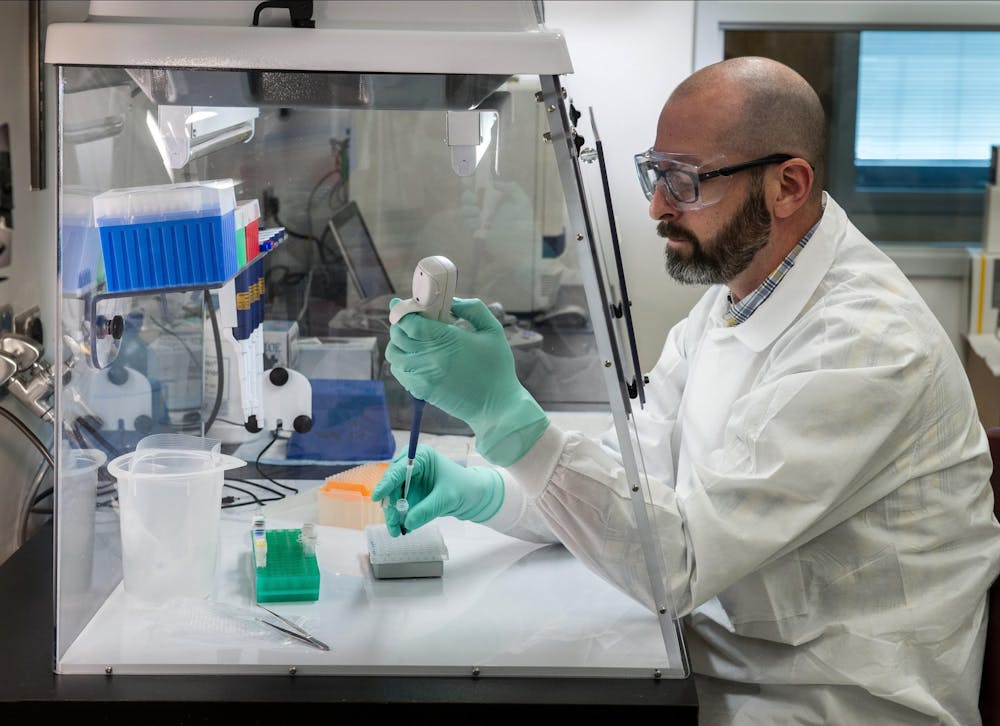It has been nine months since COVID first ripped through the U.S., and there may finally be a light at the end of the tunnel.
This week, the U.S. Food and Drug Administration found Pfizer’s COVID vaccine to be highly effective and that it doesn’t raise any safety concerns. The agency will meet in open session on Dec. 17 to discuss emergency use authorization for Moderna’s vaccine. If approved, the two pharmaceutical companies would shatter the previous vaccine record, held by the makers of the mumps vaccine, which took four years to develop.
It would also allow for some sort of return to the pre-COVID sense of normalcy.
Both companies are in the final stages of developing a vaccine, and their products are proving to be over 90% effective — better than what top scientists, including Dr. Anthony Fauci, director of the National Institute of Allergy and Infectious Diseases, had hoped for.
Though it will still take months for the final product to reach the bulk of the U.S. population, rumors and conspiracies about the vaccine have already been circulating.
Humans have long craved concrete knowledge, so the absence of such knowledge can lead to baseless theories and feelings of unsettlement. Thomas Russo, chief of the Division of Infectious Diseases in the UB Department of Medicine, cautioned against jumping too quickly toward a conclusion about the COVID vaccine.
Traditionally, doctors might inject a weakened antigen into our bodies to trigger an immune response. But the COVID vaccines leading the pack at the moment are a newer type of vaccine called mRNA vaccines.
“We’ve never had an RNA vaccine that’s been approved for use in humans before and the reason is because technically these are tricky vaccines to make,” Russo said. “But years and decades of research have resulted in technological advances, so it looks like it’s finally coming to fruition.”
Instead of injecting the body with a piece of the virus, mRNA vaccines inject the body with RNA, which is like an instruction manual. These instructions teach our bodies how to make a harmless piece of the virus, which will then trigger an immune response. One benefit of an mRNA vaccine is its fast production time. Experimental batches of mRNA vaccines are able to be developed significantly faster than conventional vaccines. Since a vaccine is needed as quickly as possible in this case, speed is key.
But speediness comes with safety concerns. Many students are worried the rush to come out with a vaccine means the population will be given something that isn’t ready or safe. Some conspiracists even believe there will be a tracking chip in the vaccine or the vaccine will cause crazy, deadly side-effects.
Russo disagrees.
“Now I think it’s critical for people to realize, particularly here in New York State because Gov. [Andrew] Cuomo is very nervous about vaccines being rushed and maybe not being effective or safe, that [when it comes to safety] vaccines are held to the highest standard,” Russo said.
In the past, Cuomo has said FDA approval of a vaccine would not be enough for him to distribute it to New York State residents. But he has since said he expects 170,000 doses of the vaccine by Dec. 15.
Cuomo may be hesitant to administer the vaccine in his state, but Russo said the layers of protection that already occur make sure the vaccines are safe.
“Vaccines are held to the highest standard and there are sort of four steps in the efficacy and safety evaluation,” Russo said.
The first step entails a Data Safety Monitoring Board consisting of statisticians and other individuals who are not involved in the trials. The DSMB will look at the data from trials and act as the “first line” of defense to make sure everything is working and going well.
“The next phase,” Russo said, “would be all that data gathered by the
organization or the company that is safe and effective being presented to the FDA. The FDA, of course, has a large group of individuals. This is what they do. This is all they do in their area of expertise.”
The FDA passes an additional judgment on the safety and efficacy of the vaccine, on top of what the vaccine producers have already concluded.
The third phase of the approval process is the FDA’s independent advisory committee, which is a committee of experts separate from the FDA who evaluate the data. Once the data goes to this committee, it becomes public by law.
“So that's very important,” Russo said. “Not only do you have an expert committee, which is the third sort of layer of review here. But then also when the data goes public, that allows other individuals to sort of look at it and make sure everyone else has interpreted it correctly.”
The fourth and final layer of protection is the data being reviewed by the CDC’s committee, the Advisory Committee for Immunization Practices. All of this happens before the vaccine is given to the public. With so many different people and experts reviewing the data from the vaccine’s trials, Russo said the odds of a tracking chip or something similar being snuck into a vaccine are nonexistent.
“The public's confidence should be extraordinarily high. Our standards and our bars in this country for approving drugs and vaccines historically have been greater than any part of the world,” Russo said. “This vaccine is really going to be our ticket for getting on the other side of this pandemic.”
The features desk can be reached at features@ubspectrum.com





